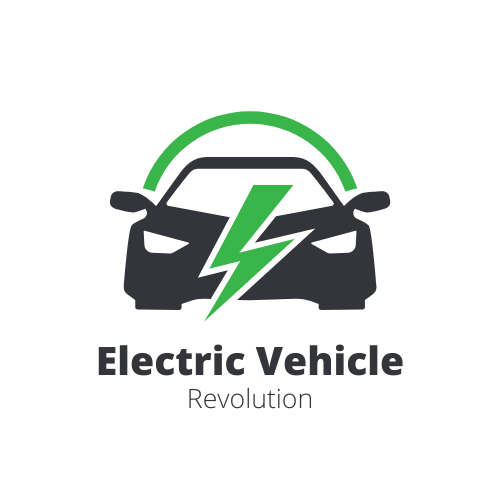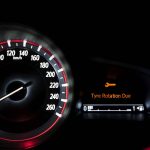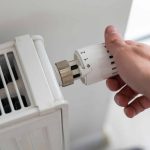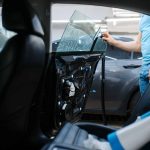With the automotive industry shifting radically towards electric vehicles (EVs), there is a rising need for understanding the nuances of how these vehicles are regulated and maintained. A key aspect of this is the Ministry of Transport (MOT) test, which ensures the safety and roadworthiness of vehicles in the UK. As you are well aware, MOT requirements differ based on the type of vehicle. This article will provide detailed insights into the unique MOT requirements for EVs compared to diesel cars.
MOT for Electric Vehicles
Electric vehicles are subjected to the same annual MOT test as their petrol or diesel counterparts once they’re three years old. However, there are subtle yet significant differences in the requirements. This is due to the notable variances in the mechanics of electric vehicles compared to cars that operate on petrol or diesel.
Also read : How can you effectively use engine tuners and remapping tools on UK cars without voiding the warranty?
The Absence of the Exhaust Emissions Test
Electric cars produce zero tailpipe emissions, making one of the primary MOT requirements for traditional vehicles redundant for EVs. Diesel cars, for instance, will undergo a thorough examination of their exhaust emissions to ensure they are not releasing harmful pollutants into the environment. Since EVs have no exhaust, this test is not applicable. Additionally, EVs do not have certain components that are commonly inspected in the MOT such as the fuel system and catalytic converter.
Battery and Charging System Checks
In the place of an exhaust emissions test, EVs are subjected to a detailed inspection of their battery and charging systems. This is crucial to ensure the safety of the vehicle, as the high voltage batteries and systems in EVs pose a unique set of risks. The inspection will verify that the battery is secure, not leaking, and shows no sign of damage or malfunction. Similarly, the charging system is also examined to ensure it operates correctly and safely.
Topic to read : How do you determine the correct air to fuel ratio for maximizing efficiency in UK hybrid cars?
MOT for Diesel Vehicles
Diesel vehicles undergo a more traditional MOT test, due to their internal combustion engines and the associated systems. Diesel engines, in particular, have to meet stringent emission standards.
Exhaust Emissions Test
As mentioned, the exhaust emissions test is a key part of the MOT for any vehicle running on petrol or diesel. Diesel cars are often subjected to a more detailed scrutiny due to their propensity for releasing harmful pollutants. The test measures the levels of hydrocarbons, carbon monoxide, and nitrogen oxides being emitted, and checks for the presence of particulate matter – all of which can be harmful to the environment and public health.
Engine and Fuel System Checks
Another key aspect of the MOT for diesel cars is the inspection of the engine and fuel system. These checks aim to ensure that the vehicle is safe and running efficiently. They include inspections of components such as the engine mountings, fuel injectors, and the diesel particulate filter, which captures and stores exhaust soot to reduce emissions from diesel cars.
Hybrid Vehicles and the MOT
Much like EVs, hybrid vehicles are becoming increasingly popular due to their eco-friendliness and efficiency. They combine an internal combustion engine with an electric motor, meaning they have unique MOT requirements that share similarities with both EVs and diesel cars.
Combined Exhaust Emissions and Battery Checks
Hybrid cars undergo both an exhaust emissions test and a battery and charging system check, mirroring the requirements for diesel cars and EVs respectively. This ensures that both the petrol or diesel engine and the electric motor are functioning safely and efficiently.
Service of Both Engines
For hybrid vehicles, the MOT test also includes a service of both the conventional engine and the electric motor. This involves a comprehensive inspection of the internal combustion engine similar to a diesel car, and an examination of the electric motor and its accompanying systems as would be done in an EV.
In conclusion, while the MOT test is a critical part of vehicle safety and maintenance regardless of the fuel type, the specific requirements differ between electric vehicles, diesel cars and hybrid models. These differences largely stem from the unique modes of operation and associated components of these vehicles. By understanding these requirements, you can better prepare for your MOT test and ensure your vehicle passes with flying colours.
The Importance of MOT for Electric and Diesel Vehicles
The Ministry of Transport (MOT) test is a crucial aspect of vehicle safety and roadworthiness. Its role in maintaining safe vehicle operation cannot be overstated. While all vehicles must comply with the requirements of the MOT test, the specific requirements vary depending on the type of vehicle. In this section, we will delve into why the MOT test is particularly important for both electric vehicles (EVs) and diesel cars.
Considering the increasing popularity of EVs, the MOT test ensures these vehicles are safe for the road and for the user. Given the unique nature of these vehicles, their MOT test includes a detailed examination of their battery and charging system, which are crucial components of EVs. It is necessary to confirm that these systems are working correctly and safely. Furthermore, the test verifies the absence of any potential hazards like leaks or damage in the battery.
Conversely, diesel cars undergo a different set of checks, focusing on their exhaust emissions and fuel systems. The exhaust emissions test is a crucial part of the MOT for diesel cars due to their potential for releasing harmful pollutants. The engine and fuel system checks are also vital to ensure the vehicle is running efficiently and safely.
Therefore, the MOT test is not only important for maintaining road safety but is also critical in our efforts to reduce the environmental impact of vehicles, particularly for diesel cars due to their emission levels.
Keeping Up with Changes in MOT Regulations
While the fundamental principles of the MOT test remain consistent, some aspects of the test evolve over time due to advancements in vehicle technology and changes in regulations. For instance, the increasing adoption of EVs has necessitated adjustments to the MOT test to accommodate their unique mechanics.
For electric vehicles, the MOT test has been adapted to include detailed checks of the battery and charging systems. Furthermore, as EV technology advances, future changes in the MOT requirements may be necessary to ensure these vehicles continue to meet safety and performance standards.
Similarly, for diesel vehicles, changes in MOT regulations often center around exhaust emissions due to tightening environmental standards. Diesel cars often face more rigorous checks, with the emissions test becoming increasingly stringent. Future changes in regulations could further affect the MOT requirements for diesel cars.
In conclusion, understanding the MOT requirements for your vehicle type, whether it’s an EV, a diesel car, or a hybrid, is crucial for passing the test and keeping your vehicle in top condition. With the ever-evolving nature of the automotive industry, staying updated with changes in MOT regulations will ensure your vehicle remains safe, efficient, and compliant with the law. Being mindful of these requirements and regulations is not only beneficial for vehicle owners but also contributes to a safer and cleaner environment.
















